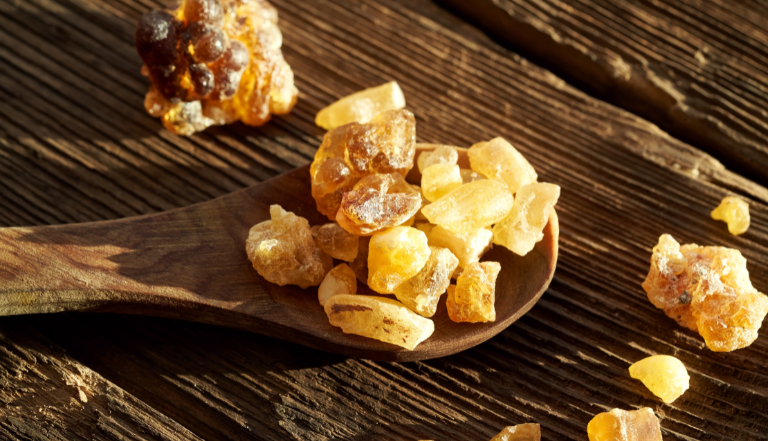
Brazil, known for its expansive manufacturing sector, has seen significant advancements in coatings and adhesives technology, particularly with the growing use of phenolic resins. These resins, especially phenol-formaldehyde and phenolic epoxy resins, have become integral to industries that require high-gloss finishes, such as automotive, furniture and consumer electronics. The unique properties of phenolic resins – ranging from their strong adhesive capabilities to their excellent chemical resistance – are driving innovations in high-gloss finishes across Brazil’s various industrial sectors.
High-gloss finishes are often associated with premium products and their demand has surged as industries in Brazil look to provide sleek, aesthetically pleasing surfaces for consumers. This demand, combined with the exceptional performance characteristics of phenolic resins, has led to their widespread adoption. Cities like São Paulo, Rio de Janeiro and Curitiba, where manufacturing and production are central to the economy, are witnessing a boom in the use of phenolic resins for high-gloss applications. This article delves into how phenolic resins are fueling innovations in high-gloss finishes, focusing on Brazil’s key cities and industrial sectors.
Understanding Phenolic Resins and Their Role in High-Gloss Finishes
Before exploring how phenolic resins are shaping high-gloss finishes in Brazil, it is essential to understand what phenolic resins are and how they function. Phenolic resins, particularly phenol-formaldehyde resins, are a class of synthetic polymers known for their excellent adhesion properties and high thermal stability. These resins are typically used as binders in a wide variety of applications, including adhesives, coatings and molding compounds.
In the context of high-gloss finishes, phenolic resins offer significant advantages due to their ability to create smooth, durable surfaces. When combined with various additives and fillers, these resins can enhance the gloss levels and improve the resistance of finished products to moisture, heat and chemicals. In Brazil’s competitive manufacturing environment, the ability to provide long-lasting, aesthetically appealing finishes is essential and phenolic resins deliver the necessary performance.
Phenolic resins are often employed in creating phenolic laminates, which are widely used for producing high-gloss decorative surfaces. The versatility and adaptability of these resins allow manufacturers to tailor their properties to suit specific performance requirements, making them a preferred choice for industries producing high-end furniture, automotive parts and appliances.
The Demand for High-Gloss Finishes in Brazil’s Key Industrial Cities
Brazil is home to a diverse industrial landscape and different cities across the country are leading the way in adopting phenolic resins to create high-gloss finishes. São Paulo, Rio de Janeiro and Curitiba stand out as key regions where the demand for high-gloss finishes is driving innovation in the coatings and adhesives market.
São Paulo: A Hub for High-Gloss Applications in Automotive and Consumer Goods

São Paulo is Brazil’s economic powerhouse, housing a vast array of industries, including automotive, electronics and consumer goods manufacturing. In this city, the demand for high-gloss finishes has surged, particularly in the automotive and consumer electronics sectors, where appearance plays a vital role in consumer purchasing decisions.
In São Paulo’s automotive industry, phenolic resin adhesive systems are increasingly used in the production of high-quality coatings for both the interior and exterior components of vehicles. The glossy, durable finishes provided by phenolic resins are not only aesthetically pleasing but also ensure resistance to environmental factors such as UV radiation and moisture. This makes them ideal for automotive parts that are exposed to harsh conditions, such as bumpers, trims and dashboards.
In consumer goods, São Paulo-based manufacturers are also utilizing phenolic laminate technology to produce high-gloss finishes for appliances and home electronics. The demand for sleek, modern finishes in home appliances such as refrigerators, ovens and washing machines is creating a lucrative market for phenolic resins.
Rio de Janeiro: Innovation in Furniture and Interior Design
In Rio de Janeiro, the furniture and interior design industries are experiencing rapid growth and the demand for phenolic resins in high-gloss finishes is accelerating. The aesthetic appeal of high-gloss surfaces has become a top priority for manufacturers in the city, particularly those producing luxury furniture and interior decor.
Furniture manufacturers in Rio de Janeiro are increasingly turning to phenolic resin material to create glossy, scratch-resistant finishes on wood, metal and laminate surfaces. The ability to produce a mirror-like finish with superior durability has made phenolic resins the go-to solution for high-end furniture designers who need both aesthetics and performance. Additionally, these resins are contributing to the rise of more sustainable and cost-effective solutions for manufacturers who previously relied on more expensive or less durable alternatives.
As Rio de Janeiro continues to build its reputation in the luxury design market, phenolic resins will remain a central component in ensuring the long-lasting appeal and functionality of high-gloss finishes in the furniture sector.
Curitiba: Advancing Industrial and Electronics Manufacturing
Curitiba, a city known for its emphasis on sustainability and industrial development, is also witnessing a rise in the use of phenolic epoxy resin in high-gloss applications. Curitiba’s industrial base, particularly in electronics and electrical components manufacturing, has contributed to an increasing demand for adhesives and coatings that can withstand the challenging environments that industrial equipment and electronics often face.
In the electronics sector, phenol-formaldehyde adhesive is being used to create durable coatings and bonding agents for circuit boards, connectors and housings. The high-gloss finishes enabled by phenolic resins provide both aesthetic appeal and enhanced protection, ensuring the longevity and reliability of these products. Manufacturers in Curitiba are leveraging the strength and versatility of phenolic resins to develop more reliable and high-performance electronic devices.
Innovative Applications of Phenolic Resins in Brazil’s High-Gloss Market
The use of phenolic molding compounds in Brazil is not limited to the automotive, electronics and furniture industries. These resins are also making their way into other innovative applications that require high-gloss finishes. Some examples include:
- Architectural Coatings: As Brazil’s construction industry expands, especially in urban areas like São Paulo and Rio de Janeiro, the demand for glossy architectural finishes, such as countertops, floors and wall panels, is growing. Phenolic laminates are increasingly being used in these applications, offering both durability and aesthetic appeal.
- Packaging: With Brazil’s robust packaging sector, phenolic resins are being used to create glossy finishes for packaging materials, especially for luxury products in the cosmetics and beverage industries. These high-gloss finishes not only attract consumers but also provide added protection to the products inside.
- Consumer Electronics: Phenolic resins are also finding their place in the production of high-gloss finishes for consumer electronics such as smartphones, laptops and home appliances. Their ability to provide a smooth, attractive and durable surface is highly valued in this market.

The Future of Phenolic Resins in High-Gloss Finishes in Brazil
As Brazil continues to modernize its manufacturing and production capabilities, the role of phenolic resins in creating high-gloss finishes is set to expand. The flexibility of phenolic resin adhesive to adapt to various industries will drive future innovations. Whether in automotive, furniture or consumer electronics, the demand for high-performance, visually appealing finishes will continue to rise, with phenolic resins at the forefront of meeting these needs.
With ongoing investments in technology and manufacturing processes across Brazil’s key cities, the use of phenol formaldehyde resin will become even more essential for companies looking to enhance their products’ aesthetic appeal and performance. From São Paulo’s automotive sector to Curitiba’s electronics industry, phenolic resins are poised to play a significant role in shaping the future of high-gloss finishes in Brazil.

Conclusion:
In conclusion, phenolic resins are transforming the landscape of high-gloss finishes in Brazil, driving innovation across multiple industries. Their exceptional properties, including strong adhesion, durability and chemical resistance, are making them indispensable for applications that require glossy, long-lasting surfaces. From São Paulo’s automotive industry to Rio de Janeiro’s luxury furniture market and Curitiba’s growing electronics sector, the demand for phenolic resins is reshaping Brazil’s manufacturing capabilities.
As industries continue to seek out high-performance adhesives and coatings for various applications, phenolic resins will remain a key material in ensuring the aesthetic appeal, functionality and durability of high-gloss finishes. The ongoing innovation and adaptation of phenolic resins in Brazil will keep this material at the forefront of modern manufacturing for years to come.
- Role of Rosin Modified Phenolic Resins in Brazil and Mexico’s Industries
- Phenolic Resin in South Africa and Egypt: A Comparative Market and Supply Chain Analysis
- Titanium Acetylacetonate in Asian Catalysis: Driving Innovations in Petrochemicals and Green Chemistry
- How Phenolic Resins are Driving Innovations in High-Gloss Finishes in Brazil?
- Why Reactive Polyamide Resins are Revolutionizing Epoxy Adhesives in the European Construction Sector?



